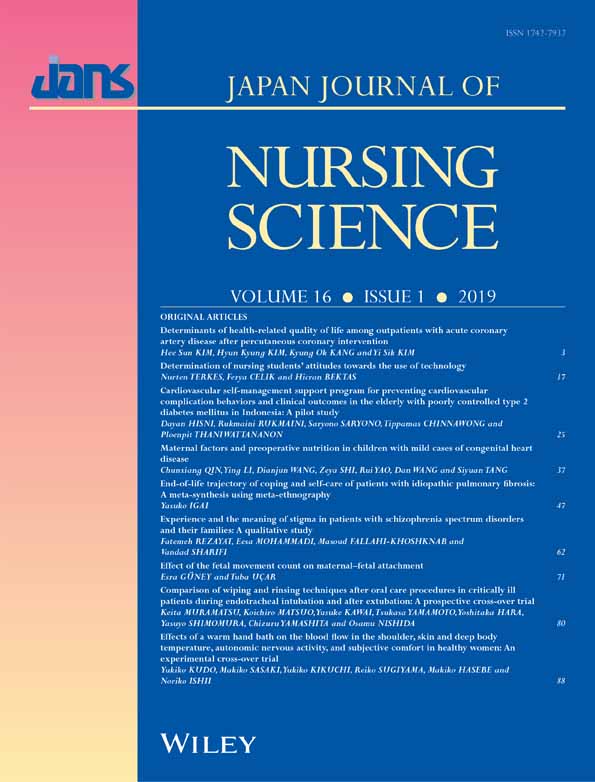Cardiovascular self-management support program for preventing cardiovascular complication behaviors and clinical outcomes in the elderly with poorly controlled type 2 diabetes mellitus in Indonesia: A pilot study
Abstract
Aim
The aim of the study was to determine the feasibility, and to evaluate the effect of, a cardiovascular self-management support program by applying the 5A's self-management support program on preventing cardiovascular complication behaviors and to assess the clinical outcomes in the elderly with poorly controlled type 2 diabetes mellitus (DM).
Methods
This pilot study used a quasi-experimental study design. Twelve elderly persons with poorly controlled type 2 DM were assigned into either a control or experimental group, with six participants in each group. The Preventing Cardiovascular Complication Behaviors (PCCB) was measured by the Preventing Cardiovascular Complication Behaviors Questionnaire, while the clinical outcomes were measured by clinical devices that were provided. These measurements were conducted and compared at baseline and 6 weeks after the completion of the program. The self-management support program was a 6 week program with several implementation methods, based on the 5A's self-management support program.
Results
The participants who received the cardiovascular self-management support program reported a significant improvement in their PCCB and clinical outcomes, compared to those receiving the usual care.
Conclusion
This study revealed that a cardiovascular self-management support program that applies the 5A's self-management support program is feasible for implementation.
CONFLICT OF INTEREST
The authors declare that they have no conflict of interest.




